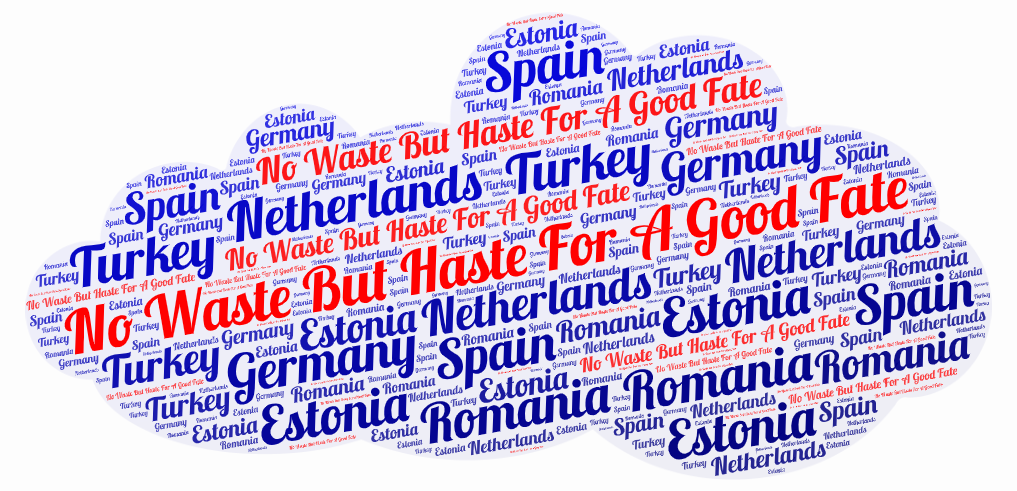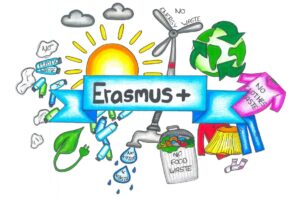TITLE: NO WASTE BUT HASTE FOR A GOOD FATE
NUMBER: 2020-1-DE03-KA229-077567
PROGRAM: ERASMUS+
TYPE: EXCHANGE OF GOOD PRACTICES
BETWEEN: September 2020-August 2022
PARTNERS:
ELEONOREN-GYMNASIUM, GERMANY (COORDINATOR)
ÖZEL SIMGE ORTAOKULU, TURKEY
COLEGIUL NATIONAL DE INFORMATICA MATEI BASARAB, ROMANIA
IES LLORENÇ GARCIAS I FONT, SPAIN
LENTIZ LIFE COLLEGE, NETHERLANDS
MÄETAGUSE PÕHIKOOL, ESTONIA
GERMANY
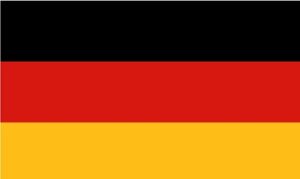
The "Eleonoren-Gymnasium" is an ancient secondary school founded in 1874 and its actual building was opened in 1906. Our staff consists of 77 teachers including 3 teacher trainees. We have about 985 students from the age of 10 up to 19 years. Our Comenius/Erasmus+ programs started in 1996. The Eleonoren-Gymnasium has as its areas of specific expertise languages, STEM (Science, Technology, Engineering and Mathematics/ MINT in Germany) and the fine arts. We teach English, French, Latin, Italian, Russian and Chinese. Hence, we have school exchanges with partner schools in several countries. In the year 2018 the Eleonoren-Gymnasium was rewarded with the title Europaschule. The focus on science and the implementation of modern media is realized by the use of iPads, electronic boards and cross curricular activities such as media literacy and information literacy education. Among many scientific and cultural activities the school offers various extracurricular activities in the field of environmental issues. A main concern of our philosophy is to ensure that students are aware of the fact that waste management is a necessary and crucial tool to ensure the future of our planet. Many students in Germany and our school show their ambitions by participating in regular protests called “Fridays for Future”. Our school community rewards one class every year for the best waste management after competing in a one year challenge.
We separate our waste bydistinguishing between three different types of material and therefore help the recycling process. The conceptualisation of this project started from a survey we conducted, based on our constant involvement in protecting the environment we leave in and our students' desire to actively involve themselves in the metamorphosis of our society based on small constant changes of our behavoiur patterns. Small gestures and daily habits internalized by the youngest members of our society can be a guarantee of a genuine longterm evolution. The students want to be a bigger part of this positive transformation and they are eager to take an active position into this project where the European impact is an added value of great significance for them. Key Persons; The team leader is Nina Böhm, an English teacher, will be supported by the ICT teachers and the art teacher. The councellor of the school will support our students with difficulties to be a real part of the project. In case these persons leave, school management will put their roles on some other school staff. We are fully motivated, we believe in the success of this project and we have experience in European projects to understand the importance of fullfilling the aims, of a good dissemination and an extended visibility. We also have got the necessary logistics and also good experience in e-tools to make sure that the final clip will be of high quality and longterm impact.
TURKEY
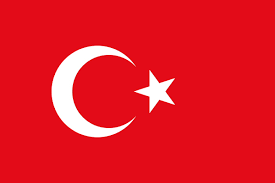
Technolgy and design workshop room We have 15 staff (1 headmaster, 1 deputy headmaster, 1 counselors and 12 teachers) and 87 students aged from 11 to 14. The project will involve all the school community including the students with fewer opportunities and the disadvantaged ones in terms of enhancing inclusive eduation. We are a newcomer in the Erasmus Programme and we want to strengthen the European dimension at our school and provide international learning experience to our students in terms of figuring out how to deal with environmental problems through seeting up a good waste management thanks to being a part of this project. As athe result of the survey we conducted, we face with the same waste problem with all the other 5 partners. Some of our students don't care about classifing trash for a proper recycling which causes a mismanagement of waste. They usually leave their classrooms, the ground of the school yard,
corridors in a mess in the end of each school day. Actually the
same careless mind can be observed in the actions of people living in our
neighbourhood because there is an open bazaar next to our school building and
the people doing shopping there throw a lot of rubbish around, which means we
have to raise awareness in a wider community scope. Besides, according to the
results of the survey we conducted, there are some social problems among our
students, a kind of social exclusion, that need to be solved in an indirect way
within an ICT integrated approach to attract the attention of young people keen
on using mobile devices. We also aim to develop knowledge and understanding of
the diversity of European cultures and its value among our students and
teachers. Being open minded and caring about the nature is the keys to have a
good social interaction and a clean livable physical environment.
ROMANIA

Our school has over 2000 students and 123 teachers coordinated by one headmistress and three deaputies. There are 3 educational levels: the primary, the secondary and the high school. Our general profile is informatics, our students learn two foreign languages but other subjects are also important, such as sciences, geography, social studies etc. It is important that our students acquire as many abilities as possible in order to actively contribute to the regional development. We have contributed to the conceptualization of this project because it is essential for our students to improve their abilities in order to be more competitive on the labor market. The school is situated in a beautiful area with huge touristic potential insufficiently exploited. The chemical factory of the town was closed and the unemployment rate has grown. The only solution is to focus on the development of an eco-tourism, to protect the areas around and to promote an eco-friendly accommodation and services. The young people are the entrepreneurs of tomorrow: in order to
promote and develop a business in tourism area, they need to be able to communicate, to use
ICT and to promote true values internalized by themselves and their families.
Due to the project, our students will be highly motivated to improve their
abilities and to enlarge their vision about our world and be motivated in
finding solutions for the contemporary issues, especially for the
environmental ones as the Romanian society is not very Green and we need a real
internalization of basic environmental values as the ones promoted by the WASTE
project. Some of the Romanian students have few opportunities to go abroad so
their representations about the European realities are limited and built on
clichés. The project will involve students socially and economically
disadvantaged and also pupils having physical or mental disabilities. The
project will also be a great opportunity for our students specialized in
ICT: they learn a lot of theory but they have few opportunities to use their
skills for a real project. This project will allow to develop their
professional skills.
SPAIN
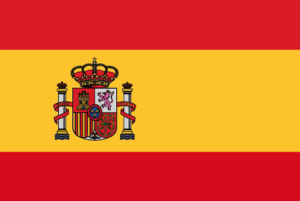
Our school is a state secondary school which comprises students aged 11-18 and above as we have also some vocational courses. That is both, compulsory and post-compulsory secondary education. For more than 20 years, our school has been implementing an international programme known as the British Programme (agreement between the British Council and the Spanish Ministry of Education). We are a total of 84 teachers, figure that includes the managing staff. We have 696 students attend our school at the different stages.Our school is fully motivated to be a part of the project as we are implementing an international programme and we feel the need of broadening our professional, educational borders. Our school vision pays attention to our students' real needs and we aim to give them opportunities to feel integrated into an European project, to exchange and communicate their experience with other students from different countries, languages, cultures and traditions while showing their own as well, which improves their motivation and their knowledge about foreign countries, environment, languages, sciences, arts and technologies of the real Europe. We have conducted a survey among the members of our school and decided to apply for this project to figure out an attractive way of raising environmental awareness of our students via exchanging good practises with our partners dealing with the same
Our school is a state secondary school which comprises students aged 11-18 and above as we have also some vocational courses. That is both, compulsory and post-compulsory secondary education. For more than 20 years, our school has been implementing an international programme known as the British Programme (agreement between the British Council and the Spanish Ministry of Education). We are a total of 84 teachers, figure that includes the managing staff. We have 696 students attend our school at the different stages.Our school is fully motivated to be a part of the project as we are implementing an international programme and we feel the need of broadening our professional, educational borders. Our school vision pays attention to our students' real needs and we aim to give them opportunities to feel integrated into an European project, to exchange and communicate their experience with other students from different countries, languages, cultures and traditions while showing their own as well, which improves their motivation and their knowledge about foreign countries, environment, languages, sciences, arts and technologies of the real Europe. We have conducted a survey among the members of our school and decided to apply for this project to figure out an attractive way of raising environmental awareness of our students via exchanging good practises with our partners dealing with the same
NETHERLANDS
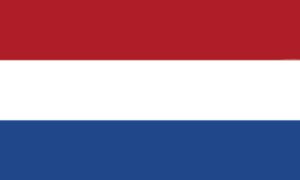
Lentiz LIFE College, part of the Lentiz education group, is a school for VMBO and MBO in the heart of Schiedam. We have 70 staff and 650 students. We have a very cultural diverse school, there are many different nationalities amongst our staff and students. Our school population is as follows: 80% of the pupils are immigrants, more than 60% of our pupils live in a so-called Poverty-Problem Cumulative area; most pupils come from families with low socio-economic status. Our pupils are often incompletely integrated into the mainstream / society, 60% of them have an LWOO-indication in the VMBO-phase, their language is often weak and we see a lot of structural unemployment, or the life of social benefits from parents and in the environment of the students. Our students are not only prepared for the Dutch world by implementing our educational concept, but placed in an international context in which they can claim their place due to the education we provide. Sutainability is a main topic in our current society, many of our pupils are concerned about climate change and the future of
our planet. The Lentiz education group is very outspoken on the importance of sustainability in education and therefore made it one of the keypoints in their strategic plans for the coming years. The vocational department of our school has the ECO-school certificate. We conducted a survey and decided to join this project through which we can broaden the ECO-school objectives to our secondary education department. We hope that trough this project we are able to broaden the attention and awareness on sustainability and the role our pupils and teacher can play in helping our society become more sustainable. In our region we can find a lot of interesting examples of companies and organizations who are concerned with sustainability and the economic and technological factors that play a role in sustainability. Our intention is to find ways to integrate the topic of sustainability and the role it has in our (future) society and labour market in our curriculum.
ESTONIA
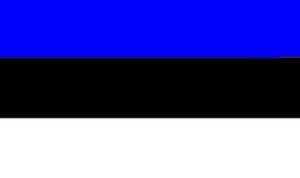
Mäetaguse Basic School is a small rural municipal school in northeast of Estonia with 132 students aged 7 to 16. We teach according to the Estonian National Curriculum (mandatory for all the schools in Estonia). The school (as all the other basic schools in Estonia) is divided into three stages, the first is grades 1.-3., the second is grades 4.-6., and the third is grades 7.-9. In the stages I and II there are 86 students and in the III stage there are 46. Our school has 25 teachers; most of them have a full time teaching job in our school while some work on a part-time schedule. We are an inclusive school where students with different native languages (Estonian and Russian) study together and we also have some students with SEN alongside with regular students. Mäetaguse Basic School is motivated to join the project, as a result of the survey we conducted, because we have made some steps in getting our students to be more environmentally conscious, but a great deal of work needs to be done. The project on the topic of
waste is a good opportunity to actively participate in creating materials for students while at the same time becoming more aware of the problems that our world faces and the small steps that we as individuals can do to make things better. Our school is situated in a beautiful rural area, but as we have nearby oil shale mines and chemistry factories, our region is also known by being an industrial mining area, the fact which has literally drained and undermined our nature. The negative effects on the environment caused by excavation and refining oil shale have risen sharp discussions and debates on the national level with the realisationof the need to move towards more sustainable and green energy. In this matter, our school and students have little or no power. Nevertheless, we need to take small actions that done by masses can cause a big impact. It is in our power to teach students how to produce less waste in their homes, how to live a life with less things, how to reuse and recycle more and so one.
In our society, the importance of a high quality life style tends to transform opportunities into problems as our perception of daily existence has led to over-consumerism of food, water, energy, clothes and other products. Unfortunately, this perception tends to string along bad habits, represented by the notion of WASTE, a central element of our project which contributes to the pollution of ecosystem, useless burdening of our planet and a pressure on the shoulders of society. We as Germany, Romania, Netherlands, Spain, Estonia and Turkey came up with this project idea after conducting a survey and seeing that we have common needs/priorities. Our project proposes to fight against some of bad habits that corresponds to a global priority defined by the European Commission, which aims to support awareness about environmental challenges in order for our students to become true factors of change (by saving resources, reducing energy use and waste, promoting a sustainable food choice etc.) The Waste project wants to train our students to avoid making waste, and to acquire eco-friendly habits doubled by entrepreneurial skills that contribute to a regional development since our schools are settled in areas with sustainable touristic potential.
- To raise participants awareness in caring the environment in which they spend their life as well as being aware of their own capacity of acting and taking good decisions.
- To emphasize common values, civic engagement and responsible citizenship through international projects building up a strategic partnership.
- To support our students acquire new skills by effective use of ICT tools for both learning and teaching.
- To foster effective use of foreign languages in the process of evolving on both professional and personal paths, social entrepreneurship, critical thinking, creativity and cooperation via reusing objects and promoting sustainable development.
- To foster distance teaching/learning for emergency cases as the one we face with nowadays; the spreading of Corona virus.
- To form international cooperation between educational institutions and exchange of good practices in teaching, learning and extracurricular activities.
- A video clip (advertising) about Waste Management
- Website
- Twinspace
- Logo
- 2 calendars
- An eco-friendly brochure
- Visuals as flyers, quotes, banners, posters.
OBJECTIVES
Our students will, •develop awareness of the importance of reducing WASTE •become more active and determined by developing CRITICAL THINKING •raise awareness and understanding of social-cultural diversity •acquire social, civic and intercultural competences necessary for their personal development •learn more about their own, other societies and traditions •become confident individuals who have a sense of self-worth, personal and European identity •develop their enquiry, research and evaluation skills •improve the communication skills in English
Our schools will: •increase their quality of education via offering international learning experience, and enhancing cross-border cooperation We have a global vision of dissemination with the aim of creating a worldwide impact on a great number of people to raise environmental awareness. The website and twinspace will live on long after the project is completed through being updated and enriched. The Waste advertisement will develop critical thinking, by being aired on TVs-Radios, even after the project duration. We will make use of all the project results in our schools' curricula and learning goals for a long time.
Our teachers will: •learn innovative ICT based teaching methods-tools through actively taking part in the creation of visuals •exchange ideas and good practices in dealing with environmental issues, learners with disadvantaged backgrounds, diversity in classrooms, use of new teaching methods and tools
